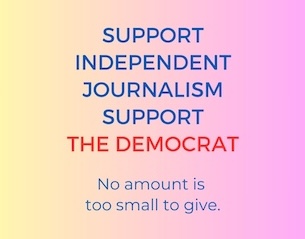- More
- Issues, Challenges for Start-up’s post COVID -19
Issues, Challenges for Start-up’s post COVID -19
Due to COVID-19, small businesses, start-ups, and entrepreneurs have directly affected ona problems for their business. Now a day’s start-ups are associated with the third-party firms for regulatory, industrial, and legal operations. Also the essential tasks like customer services, production and administrative functions are creating problems for start-ups. As most of the start-ups have relatively

Due to COVID-19, small businesses, start-ups, and entrepreneurs have directly affected ona problems for their business. Now a day’s start-ups are associated with the third-party firms for regulatory, industrial, and legal operations. Also the essential tasks like customer services, production and administrative functions are creating problems for start-ups.
As most of the start-ups have relatively less revenue flows, the supply chain is presenting to be a big challenge in terms of providing goods and services to the customers. This obstacle will create problems to fulfil the deadlines and orders of the customers in the short-run and impact the goodwill in the long-run.
A) Issues of the companies:
1.Incorporation of the companies:
a) Company name:
Before starting the new company, the incorporation of the company is essential, before that 5 names have to be selected, to avoid the similarity/duplication of other company, after verifying all detail, the Registrar of the Company gives the approval of the name of the company.
b) Domain name protected:
Companies domain names gives the identity of administrative autonomy, authority or control within the company.
c) Trademark protection:
Trademark protection refers to safeguarding intellectual property rights , also to protect a logo , sign, colour , slogan from copying and breaking. Also it is established or legally registered mark, which identifies a manufactures unique product.
B) Challenges for Start-up companies:
1.Fund Requirement:
a) Money/ Capital;
Money / Capital should be collected from the market through shares or collecting the money from the Banks or any financial institution.
b) Third party Investment:
Third Party Investor means any Person with whom Borrower has contracted to sell any Mortgage Loan that has been funded and originated by Borrower with any Advance made by Provident to Borrower under this Agreement.
c) Limited Liability Partnership (LLP)
A limited liability partnership (LLP) is a partnership in which some or all partners have limited liabilities. In LLP, each partner is not responsible or liable for another partner’s transgression or abandon.
2. Manpower requirement:
For Start-up companies following rules have to be followed:
- legal obligations to provide a safe and healthy workplace for employees.
- Companies has to provide Centres for Disease Control (CDC) and other public health protocols and guidelines to employees.
- Companies has to provide reasonable accommodation facilities to the employees.
- Also employer has to think or avoid “slippery slope” arguments when the health crisis arises (e.g., making sure temporary work from home doesn’t become permanent)
3. More focus on online business:
Companies has to focus more on online business, various medias/ promotional activities have to use for that like Web-site, Face-book, Magazines, Journals
4. Acquisition and Merger:
Now the time comes for Acquisition & Merger with the companies. Merging with 2-3 companies may solve the financial, Marketing as well as operations problems. The outbreak of COVID-19, impact on M&A transactions. The parties to M&A transactions should carefully examine the terms of their transaction documents and consult with their counterparties.
5. Share holder patter-
a) Series A round:
Series A round of financing is the first round of financing that a start-up receives from a venture capital firm for the first time when the company ownership is offered to external investors.
The goal of Series A round is –
- To cover up salaries of employees.
- Additional market research
- Finalization of product /service introduced into the market.
b) Buy back shares:
Buyback of shares or stock buyback refers to the corporate action where a company repurchases its own shares from the existing shareholders. During the buyback of shares, the price of shares is usually higher than the market price. Buyback of shares can be done either through the open market or through tender offer route.
The main reason for Buy back shares:
1.It is a way to pay off the investors and reduce the overall cost of capital.
2.Buying back stock can easy way to make a business look more attractive to investors.
6, Insolvency:
The spread of COVID-19 has already resulted in an increase in companies experiencing financial distress as they try to soften the financial impacts of supply chain issues coupled with lower customer demand.
C) Support from Government:
Due to CORONA -19, the entrepreneurs, organizations, and start-ups are looking at the government to offer some protective measures and financial tools to strengthen them to survive through the shock. And, in a lot of cases, governments have come through to support local businesses with some noticeable initiatives
Where some governments are coming through for the business community and are providing financial and tax relief in whatever way and form they can.
The Government of India have decided to give Benefit in Income Tax for start-ups, it should be decided up to 15% for Start-up companies (Previous it was up to 25%)
As a result of such type of the preventive measures governments has to take for small businesses, start-ups, and entrepreneurs, they have been directly affected by COVID-19 , through this support the survival may get possible and improves their social and economic status.
0000











